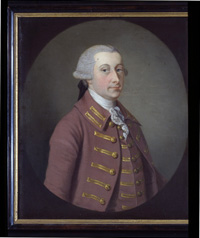The Argument Against Slavery and the Somerset Case of 1772

"I am really ashamed of my Country whenever I consider it [slavery]; and if ever I bid adieu to Virginia, it will be from that cause alone." Robert Beverly, 1761.
By the third quarter of the eighteenth century, Enlightenment ideals of freedom and equality for all men began to openly clash with the accepted practice of slavery. Highlighted by John Locke's examination of the nature of man and society in the 1690s, and reinforced and expanded upon by the works of David Hume, Jean-Jacques Rousseau, and François-Marie Arouet (more commonly known by his pseudonym, Voltaire), intellectuals in the British world began to consider more closely the contrast between the natural rights of man and how they were governed in eighteenth-century society. The institution of slavery had embedded itself in the American colonies and elsewhere during the seventeenth century and became the basis for the creation of great wealth in the British Empire. Britain had no legalized slavery under English common law, but slave codes, endorsed by the Crown, had been developed in colonial assemblies. Moreover, slavery and the slave trade were endorsed by all European religious institutions and by international law.
The year 1772 was a watershed of sorts in the history of slavery-it might be called the beginning of its end, as the legal framework upon which slavery was based began to crumble, at least in England, beginning with the landmark decision in Somerset v. Stewart. James Somerset was a slave bought in Virginia by Charles Stewart, a Scots merchant and customs official with quite close Chesapeake ties. Stewart left Virginia for England in 1768, taking Somerset with him. In 1771, Somerset took his leave of Stewart and refused to return to a state of permanent servitude. He was soon arrested and imprisoned, but his case was taken up by Granville Sharp, an inveterate opponent to the institution of slavery as antithetical to the British constitution and English common law. In a decision handed down by William Murray, Baron (later Earl) of Mansfield and Chief Justice of the Court of King's Bench, the court narrowly held that "a master could not seize a slave in England and detain him preparatory to sending him out of the realm to be sold" and that habeas corpus was a constitutional right available to slaves to forestall such seizure, deportation and sale because they were not chattel, or mere property, they were servants and thus persons invested with certain (but certainly limited) constitutional protections. Although Mansfield took great care to phrase his holding in such a way that it could not be used for a broader precedent in determining the legal status of slaves or their rights, it was widely perceived quite differently on both sides of the Atlantic: Many, including many slaves, understood Somerset to have effectively abolished slavery in England (Somerset himself believed so). Its impact was profound in the colonies as some slaves invoked it to seek their own freedom.




